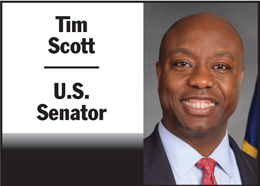Category Archives: Opinions
An ill wind that blows no good
The wind was whipping sand through the rows, and tables were being emptied of items. It was last week at the flea market in Pickens and a beautiful day. We thought we came prepared, but unfortunately, we hadn’t anticipated the wind.
The storage building on Fowler Farm has everything under the sun stuffed into it. And stuffed is the operative word. There are shelves, but their contents are inaccessible because of the stacks of stuff blocking them. Who knows what’s underneath the pile?
We had to take action. What’s the point of having a storage building if you can’t get in the door?
So we loaded up the truck with a bunch of miscellaneous items and went to the flea market to sell them. The truck was fully loaded, but we’d barely made a dent. That will be a project for another day. Once there, everything was unloaded and put out on a table. I’d backed the truck up to the table and was ready to get started when a tremendous burst of wind came through. That’s when all the plastic bags brought for customers went to the four corners of the earth. I don’t know where they ended up, but they were gone.
Then out of nowhere a young man came running up.
“Did you see my chicken?,” he asked.
“Did you lose a chicken?,” I asked.
“It’s a baby chick, and it went under your truck.”
He got down on one side of the truck and I went to the other side and looked under the truck, but neither of us saw a thing. He was about to leave when we both heard the cheep. We could hear the biddy. He, or she, was definitely under the truck, but neither of us could see where.
The young man lay down and scooted under the truck. He said the biddy was on top of the tire on my side but he couldn’t reach him. I knelt down and tried to capture him, but he cheeped madly and disappeared into one of the openings beneath the truck bed.
I couldn’t get him, and neither could his owner. Then the owner crawled out from under the truck and left to find something to dislodge the biddy from his hiding place.
He quickly returned with the plastic tube from maybe a beach umbrella. That’s just a guess, and I don’t know where he got it.
First he lay down and tried to poke the biddy out of his hidey-hole. The biddy moved, but didn’t descend to earth.
So then the young man crawled under the truck again with the plastic pole and worked at moving the biddy toward the opening he’d entered by.
Suddenly a series of cheeps and flutters announced the biddy was dislodged. He made a run for it, but his owner scooped him up. The biddy squeaked and cheeped, but it was all over. Then his owner crawled out on his belly, and they both disappeared.
I thought it was a happy ending, because I had a picture of driving away with a lone biddy lodged beneath the truck and being splatted somewhere on the road home. Not a pretty picture.
Soon after, some real customers came by and started bargaining for the valuable junk on the table. I learned toward the end to price up because everybody will make an offer of half of what you want. It doesn’t matter if something is priced at 10 cents — they’ll offer you a nickel. This was a great lesson in fair market value. They’ll only go so high, and the seller can only go so low. You meet in the middle, and everybody’s happy.
I left with lots of $1 bills and windburn. It was an interesting experience. I hope the biddy is safe somewhere growing into a productive laying hen. If it hadn’t been for his persistent owner, he could have been blown all the way to Kansas. Who knows what might have happened then.
Empowering through financial literacy
The people of this country have become all too familiar with the consequences of financial troubles. Too many have experienced the crippling effects of debt and the sense of helplessness and discouragement that it leaves in its wake. Moving forward, we can’t settle for more of the same. Rather than enabling a future riddled with financial problems, we must look to the younger generations and help them learn how to manage money and make smart and responsible financial decisions.
Whether it is a recent college graduate organizing his finances for the first time, a young entrepreneur building his business from the ground up, or a North Charleston boy raised in poverty by a single mother, I’ve seen firsthand the positive effects of this kind of knowledge and awareness. My journey, although personal, parallels that of so many others, and that’s why I’m confident that encouraging financial literacy can provide a much-needed sense of hope, empowering countless individuals to seize the wealth of opportunity that this great country has to offer.
April is National Financial Literacy Month, and I believe that one of the best things we can do for our youth is empower them to become financially literate.
Financial literacy is incredibly important for families across America, and especially for those families and students who will be taking out student loans in order to advance their education. That is why financial literacy continues to be a significant part of my legislative agenda because all Americans deserve the opportunity to succeed — it’s as simple as that.
Last March, I introduced the Empowering Student Borrowers Act (S.781) with Senator Joe Donnelly, which would aim to improve the financial literacy of college students and ensure that student borrowers have access to the best tools and information to make responsible borrowing decisions. This legislation is necessary if we are going to get serious about not only our children’s future, but also the future and economic growth of our great nation.
On the same topic, last year, I also worked with Visa on a game called Financial Football and distributed it to more than 500 schools throughout South Carolina. Recognizing the need to start young in teaching the value of financial literacy, this game serves as a fun tool developed to teach teenagers basic financial skills, highlighting how critical they truly are. These two solutions are just first steps in the right direction. As we look to generate more solutions to secure the brightest possible future for our country, I’ve found that it’s useful, and almost necessary, to first consider the past – to take a look at where we’ve been in order to determine where we’re going.
For me, that means looking back to growing up in a single parent household in North Charleston, South Carolina. My mom worked 16-hour days to provide for my brother and me, and I got my first job at 13. Although not always remaining on track, the constant love of my mom and the power of a mentor, I ended up graduating college, starting my own small business, and eventually working my way to where I am now, proudly serving the people of South Carolina.
What has remained a consistent theme throughout my journey is the power of financial literacy and getting a grasp on that simple information changed my life, providing me the possibility of financial mobility and opportunity. It taught me that, despite where I started, I could achieve prosperity, and it has the power to do the same for others.
By laying a solid groundwork for financial literacy and education, we can help reduce loan debt, ensure more of our youth have the opportunity to reach their education goals, and help more families map out financial goals, empowering them to take control of their futures. I will continue to promote financial literacy for the sake of our youth, our state, and our country.
U.S. Senator Tim Scott is a junior senator from South Carolina.
Courier Letters to the Editor 4-27-16
Honoring mothers
Dear Editor,
We celebrate Mother’s Day in May. A celebration honoring women with children. A woman can be called Mother or Mama. Whatever the name is, Mother or Mama, she’s the one who raises a child or children who are biologically hers or not. If not biological, they may not have been born under her heart but in it just the same.
It has been said that the hand that rocks the cradle rules the nation. As a woman, you have a big part in the future of the world. Those things you teach a child they will carry into life. The home is the foundation of any nation. The Chinese have a proverb which goes, “when there is harmony in the home, there is peace in the nation.”
Adopted children need love as much as any other. Love is the key to happiness, no matter the situation. Do the best you can to raise your children correctly, for the world is depending on you. Children are an investment in the future planted today .
Don’t forget that woman who raised you, who comforted the pain, wiped away the tears, held you with loving arms and nursed you back to health. The one who sat up on weekends worrying and praying until you came home safe. Cooked your meals, and corrected you when you had done wrong.
Call her Mother or Mama, she deserves your best in return for she sacrificed for you to have a life. This Mother’s Day remember her not just with flowers but with your presence which will mean so much to her. She may be gone next Mother’s Day. If your Mother is gone, visit her resting place — she’d be proud of you. Living or gone from the earth, whether she were biological or adopted, whether she’s called Mother or Mama, she lives on in our hearts just the same. This woman that held our hand as we grew up and is in her hearts forever. Happy Mother’s Day.
Eddie Boggs
Westminster
Thank you from Azalea Festival
Dear Editor,
The 32nd annual Pickens Azalea Festival took place with two days of good weather and started Friday night in full swing.
I would personally like to extend my gratitude to Pickens Mayor David Owens, City Council, the Pickens Police Department and the Streets and Sanitation Department crews for their assistance in making the festival a safe environment for everyone.
Thanks to the several volunteer groups and individuals who assisted the Azalea Festival board/committee, Pickens Senior Citizens, PHS Science Club and Danielle Yother for performing the national anthem.
I am grateful to Pickens High School artist Hanna Jones, winner of the competition to design this year’s azalea artwork, which appeared on official references to the festival. Thank you to Pickens Rotary Club for serving as sponsors of the azalea art contest.
The 10th annual 5K Walk/Run hosted by the Pickens Women’s Association saw a very successful event Saturday morning raising money to benefit the Beverly M. Smith scholarship.
Thank you to the Pickens Sentinel and Pickens County Courier for publishing the annual Azalea Festival insert. I would also like to thank IWANNA for the festival booklet, Grace Methodist Church and Bowers Transportation Services for donating the use of shuttle buses for the Hagood Mill tours and parking Saturday during the festival and to TD Bank of Pickens for sponsoring Friday’s appreciation luncheon. A big thank you to Amy Hawley and the Burning Brick for hosting the vendor drop-in breakfast on Saturday morning and to Upstate Jeep Legends Club and Lake Keowee Chrysler, Dodge, Jeep for sponsoring the Friday night cruise-in dash plaque.
The festival board extends our deepest gratitude to our sponsors: The City of Pickens, Hendricks Honda of Easley, IWANNA, Pickens County Courier, Pickens Chamber of Commerce, Pickens Sentinel, SC Education Lottery, Domino’s of Pickens, Totman-signs, Stockade ‘n’ Stuff, Pickens Dental Associates, South State Bank, Senator Larry Martin, Fairway Outdoor Advertising, TD Bank of Pickens, Home Depot of Easley, Cornell Dubilier, Burning Brick, Grace United Methodist Church, Bowers Transportation Services, Cannon/AnMed Health, Wendy’s of Pickens, Cassell/Hendricks CPA, PA, Mike Holcombe’s Tire & Auto, Bojangles of Pickens, Pickens Family Dentistry, Hardee’s of Pickens, Behvioral Health Services of Pickens County, Pizza Inn of Pickens, TTI of Anderson, Cherokee Foothills Realty, Pickens Dental Association, R. Carl Byars Ins. Agency, General Ins. Agency, Gym Life, The Life FM radio and Pickens County Council.
I personally want to thank a very dedicated group of people who volunteer their time and energy to make this festival a success each year, the Azalea Festival board and committee. It takes months of planning to put on an event of this magnitude.
Russ Gantt
Pickens Azalea Festival executive director
Testing questions
Dear Editor,
Today it was confirmed to me by Wanda Davis of the S.C. Department of Education that it is not the state’s mandate that the SC Ready Test be placed in front of the child on the testing dates and that the child has to verbally refuse the test.
This means that School District of Pickens County superintendent Danny Merck has lied to me.
He sent me the following message when I inquired about why the schools were telling parents in Pickens that their child will have to verbally refuse the test and their parental letter of intent to refuse on behalf of their child is not enough.
“At present, SC requires its schools to administer certain tests to students, and our state does not have a formal ‘opt-out’ provision. From time to time, we do have students who refuse to test. Refusing to test is different from opting-out of testing. Districts must make an attempt to test all students who are required to take state tests. If the student is present at school the day of the test or during the testing window, we must attempt to test. The SCDE has told us that we would have to offer the assessment to the student. Offering the assessment means that the assessment must be put in front of the student for an attempt to test. SDPC would deal with a refusal to test in the least disruptive way possible by handling each case individually based on the circumstances. In some cases, a student may be moved to an alternate location, while in other cases the student may have to quietly remain in the testing site. The school administration and testing coordinator will have to make that call based on the availability of staff members for monitoring students and administering the test. Like the email Ms. Raines received from the state said, it may not be possible for a school to provide instruction during that time due to constraints with their staffing and duties. Please note that students who refuse to test will be not receive a score for the assessment. It is important to note that in the case of High School End-of-Course Exams, the state test accounts for 20 percent of a student’s final grade and without that score, the final grade would be impacted.”
Not only did the superintendent lie to me … it is my opinion they are breaking the Safe Schools Act that was passed back during Gov. Mark Sanford’s term, which states, “Since students learn by example, school administrators, faculty, staff, and volunteers should be commended for demonstrating appropriate behavior, treating others with civility and respect, and refusing to tolerate harassment, intimidation, or bullying.”
Read that act here: scstatehouse.gov/sess116_2005-2006/bills/3573.htm.
I have contacted the Thomas More Law Firm for advice.
Johnnelle Raines
U.S. Parents Involved in Education board member
Pickens
More than one way to skin a cat
We all have a left and right side of the brain. Or at least that’s what they tell us. The two sides of the brain communicate with each other but — and this is just a non-scientific opinion — not everybody’s brain sides communicate well.
[cointent_lockedcontent]
Now that the tax deadline has arrived and departed once more, I can think of no other particular situation that gives as fine an example of a brain at war with itself.
 Some of us tend to be more visual than others, so a file cabinet can be particularly disturbing. We know that some people find file cabinets helpful because they file things in them in an order that makes perfect sense, at least to them, and then are able to remember the name of the file, where it is located in the cabinet and what it contains.
Some of us tend to be more visual than others, so a file cabinet can be particularly disturbing. We know that some people find file cabinets helpful because they file things in them in an order that makes perfect sense, at least to them, and then are able to remember the name of the file, where it is located in the cabinet and what it contains.
Allow me to say that this system doesn’t work for everyone as it is supposed to.
Some people are handicapped in that they view paperwork in a different way.
I’ve found that color works for me. That is, I have to have a basket on a counter or shelf that has a bright color that I can see.
For some of us, if something such as a folder is put away in a file cabinet out of sight, the brain thinks it has disappeared from the face of the earth because it is no longer visible.
It no longer exists, so therefore no more thought is given to this folder until the tax deadline rears its ugly head. That’s when a mad search begins, looking for the vital lost documents that are invisible to people suffering from this particular condition.
Many years ago, I worked as a bookkeeper for an insurance company. Part of the job included filing documents. This is when I used to have a recurring dream about pulling the file drawers open and removing all the folders, throwing them up in the air and watching them float down in complete disorder. Then, in the dream, I’d get a bottle of Coca Cola from the ice chest, shake it up thoroughly, pop the top and spray it all over the scattered papers.
It was a happy dream, as though a great celebration was occurring, and I always woke up in a state of jubilation.
It was as though I’d been freed from some form of slavery.
It was years before the realization hit me that just because I despised filing and regimentation didn’t mean I was a bad person. Just that that particular system didn’t work for me.
So I made up a system that does work for me. Also, I read a book loaned to me by a dear friend titled “Organizing for the Creative Person” that changed my life.
Each day when the mail comes, it no longer languishes on the counter. It is opened immediately while I stand next to the trash can, and the trash can is the recipient for most of it. Most of it doesn’t even have to be opened, just dumped.
This has cut clutter on the kitchen counter almost out. And it is probably the single greatest innovation introduced in our household since the beginning of time.
Keeping important papers in file folders, but not in a closed file cabinet has also been life-changing.
Anything with an open top or anything transparent works best. Just as long as it is clearly visible, everything works better for me.
So recognizing the problem and finding ways to work around it is possible for the non-regimented person. And it doesn’t mean the person is wrong, just that it is more effective for some people to approach filing in a different way. Or as Grandmama always said, “There is more than one way to skin a cat.”
Tax season has come and gone, and once more we’ve survived it more or less intact. And now we have a whole year before we have to do it again. Rejoice.
[/cointent_lockedcontent]
Courier Letters to the Editor 4-20-16
Is the UN in charge of Pickens Co.?
Dear Editor,
My understanding was the Pickens County Comprehensive Plan was shelved and was not ever approved. But yet the county council is getting ready to amend it. Pickens County Taxpayers Association and Conservatives of the Upstate members vehemently opposed the comprehensive plan several years ago, as it is a danger to the Pickens County citizenry’s rights.
By amending this supposedly “shelved” plan … does this make it valid now?
Both PCTA and COTU have spoken numerous times on our disapproval of any comprehensive plan that weakens the citizenry’s rights, especially in the area of property rights. There was objectionable language in the plan that we brought attention to several years ago.
The council members are our only defense against this United Nations Agenda 21 of developing “comprehensive plans.” By passing this amendment, I am assuming the plan now is being taken off the shelf and given teeth.
I oppose taking this comprehensive plan off the shelf, along with Conservatives of the Upstate members. We were assured it didn’t have any teeth and just sat on a shelf.
Council’s No. 1 priority should be protecting the Pickens citizenry’s rights — and I truly understand the safety issue of the coal ash. But by amending the plan, I fear this gives the “shelved” plan teeth for misuse by other forces, such as HUD and the EPA, as well as non-governmental groups like Ten at the Top and Upstate Forever, etc … to have ammo to further their agenda.
Sustainable development encompasses every aspect of our lives, and its goal is social equity. It is a political movement to replace capitalism with government control of EVERYTHING! It is a relentless attack on property rights and freedom.
Please ask our council to be vigilant on what they are about to do by opening the door to this document by amending it. Taking it off the shelf gives it new life. The United Nations, EPA and HUD are watching, I am sure, to gain footholds wherever they can.
Are we not sovereign? Do we truly want to open the door to the United Nations dictating the guidelines of what we can grow, eat, where we can live, the method of transportation we use to get to work, what jobs we can have, how many children we can have and what kind of education our children can have?
Johnnelle Raines
Pickens
A letter to America
Dear Editor,
America continues to deny God and the word of God. These haters of God continue to deny the historical fact that America was founded by people who believed in the Living God, the God of Abraham, Isaac and Jacob. The God who said that in the beginning He created the Heavens and the Earth and later created everything in them and that He did it for his pleasure.
Each colony was founded by a different Christian denomination. Generally, a whole church congregation left their home country and shipped to what is now our America, as a church/unit. Each colony established its church denomination as that colony’s church, and taxed the residents to support it. This practice continued even after the colonies became states.
When the U.S. Constitution was approved, the colonies believed in the sovereignty of God Almighty over all. Because of that, most colonies specified, in their approval, that all those appointed or voted to serve in America’s three branches of government be professed Christians who knew God, and God’s word contained in the Holy Bible, both the Old and the New Testament.
Unfortunately, we now send some people to all three branches of our government who have no idea about God or what His commandments to man are. They have twisted God’s word, the Constitution and the Bill of Rights and its subsequent amendments so that everything goes.
So yes, history does show that America was founded as a Christian nation under God. And yes, one of the Founding Fathers was a deist (one who believes God created Heaven and Earth but then left it entirely up to man). But Benjamin Franklin’s mistake only shows how smart educated people can be ignorant of God’s biblical history, which clearly shows God had an active hand and is still playing a part in this world.
But the important thing to know is that God will punish and destroy the wicked, most of mankind, because they rejected His plan of salvation, which He offered through the blood of Christ. How soon, only God knows!
Manuel Ybarra Jr.
Coalgate, Okla.
Pick a card — any card
Did you know that the Chinese not only invented gunpowder, but also introduced the rest of the world to playing cards? They, meaning archaeologists, currently think playing cards came into play in the sixth century.
Before that were dominoes, and before that, people played with knuckle bones.
 Not only are the Chinese currently credited with inventing playing cards, ice cream and gunpowder, they were also the first to have uniform minted coins to be used as currency.
Not only are the Chinese currently credited with inventing playing cards, ice cream and gunpowder, they were also the first to have uniform minted coins to be used as currency.
Money apparently came before playing cards and was introduced, or made law, by Qin Shi Huang, the first emperor of China, who came onto the world stage in 260 BC.
He abolished all other forms of currency and produced uniform copper coins. This was news to me, as I don’t recall covering this in world history.
I do remember the opium wars, but that was much later.
It may be that Marco Polo brought playing cards with him back to Italy. That’s one theory. Makes sense to me. I wish he settled for playing cards and ice cream and left gunpowder out, but that’s not what happened.
The deck of cards most of us play with today is full of history that I for one was totally ignorant of. You could say the history of the world is recorded in a deck of cards if we learn to read the symbols.
There are 52 cards in a deck and 52 weeks in a year. The 13 cards in each suit represent the lunar moons.
Some people call the ace of spades the death card, and it trumps other playing cards in some games.
Did you know that the four suits represent the four seasons? Hearts represent spring, diamonds represent summer, clubs represent fall and spades symbolize winter.
And that’s not all they represent. During the middle ages, the four suits symbolized the major economic bases of society.
Hearts stood for the church. Spades meant the military, diamonds stood for merchants and commerce and clubs represented agriculture.
And as far as face cards go, there’s an entirely separate story.
The king of hearts is the only king without a mustache. And that’s because a sloppy printer left the mustache off the wood block he was printed from. He is said to represent Charlemagne. The king of clubs is Alexander the Great, while the king of spades is King David and the king of diamonds is Julius Caesar. The kings were historical rulers. Alexander the Great was the Macedonian general who triumphed from Greece to India. David was the second king of Israel. Julius Caesar was the famous dictator of Rome. Charles the Great, i.e. Charlemagne, was the founder of the Holy Roman Empire.
Because of changes in design for convenience, Charlemagne is the only king left in the deck who still has the symbol which identifies him, the globe that represents the world.
The following theory of the royals’ identities makes a lot of sense to me:
In the suit of spades, the king represents the Jewish King David, with the queen representing Judith (from Genesis) and jack representing Judah Maccabee.
The club royalty represents Greek King Alexander, queen Argeia and jack Hector.
In the diamonds, the king is Caesar, the queen is Palas and the jack is Aulus Hirtius.
For hearts, the king is the Christian king Charlemagne, with the queen being Ragnel, wife of Sir Gawain, a knight of the Round Table, and the jack as Ogier, Charlemagne’s loyal knight.
So next time somebody asks you to pick a card, take a good look at it and think about the story it has to tell.
Courier Letters to the Editor 4-13-16
Doodle Trail a bust in Easley area
Dear Editor,
I am enchanted that the Doodle Trail in Pickens has sparked a revival of the city regarding restaurants, events and entertainment at the trail’s end in that area.
Regarding Easley, however, the Doodle Trail is a bust. The trail ends in an underdeveloped, dicey area of the city, lacking facilities, inviting restaurants, etc.
Poor planning is evident in that the trail should have, somehow, ended in a more inviting area, which could have sparked Easley’s sorely needed revival.
Considering the overall sprawl of Easley on U.S. Highway 123, downtown Easley is a ghost town of uninhabited buildings, with the glaring unoccupied Doodle Station as its centerpoint.
Faded storefront signs and vacant shops within feet of the Town Hall is an embarrassment!
Considering that Easley is the largest city in Pickens County, where is the impetus to put it on the map, or should I say, the Doodle Trail?!
Carol Milardo Floriani
Easley
Another reason to go to church
Dear Editor,
Last week a gentleman from Westminster wrote a letter explaining why some people go to church. He mentioned such things as going to find a date, going for a big dinner, going to show off a child, etc.
It appears to me that he left off one of the biggest reasons some people go to church.
Some people apparently go to church so they will be qualified to pass judgement on others and hold themselves above those whose motives they judge.
I, for one, prefer a church where I am welcomed without my motives and reasons being judged by the congregation.
Ron Jones
Pickens
Keeping things real
It’s easy to lose perspective if we stay inside too much. When the news is particularly distressing to hear and the dark clouds seem to be gathering on the horizon, it is time to go out into the beautiful world and look.
A walk in the woods in the sunshine is great medicine for the spirit. Especially at this time of year, when nature is literally bursting at the seams. Everywhere I look there is the promise of new life and great things to come.
 The azaleas are popping out, and the dogwoods have spread their lacy limbs throughout the woods.
The azaleas are popping out, and the dogwoods have spread their lacy limbs throughout the woods.
The Japanese maple I bought for a song last year at the flea market made it through the winter and has put on new leaves. The Yashima cherry tree bloomed even though a large tree had fallen on it during the winter and broken off some branches.
The ground squirrels didn’t eat the tulip bulbs I’d planted in a pot. Yahoo!
The first miracle of the week was the appearance of a beautiful swallowtail butterfly. We’d heard that the extremely warm weather in December had brought butterflies out prematurely and then cost them their lives during the freeze.
The swallowtail flying around my pansies was alive and well. I guess he hadn’t heard he was supposed to be dead. So take that, doom and gloom.
It’s hard to despair of current events when there’s a concert of sound and color all around.
Just a few days ago, a visit to the North Carolina Aquarium at Fort Fisher showed an amazing view of an environment normally invisible to us.
The seahorse aquarium was a trip to another world and another life form. We were there during feeding time and watched these tiny, delicately formed creatures eat. They wrap their tails around stalks of sea grass and flutter their wing-like fins to maintain an upright position while they eat brine shrimp.
The scene looked like something from an animated Walt Disney film.
We got to touch the back of a stingray as it swam and learned about horseshoe crabs. I never knew they had fingers on their arms used to feed themselves.
We watched sea anemones unfurl their petal-like appendages and then recoil when startled.
The display about hurricanes was especially interesting as it compared the force and destruction of each.
The volunteer manning the sea shell exhibit was highly knowledgable. She explained that during a storm surge when the ocean rises, large shells can be found unbroken on the shore afterward, because the water levels rise far above the rocky outcropping offshore that normally shatters shells.
Add that to the list of things I never knew. It is a very long list and gets longer every day.
There are things I still want to find out, but as for now, God’s in his heaven and all’s right with the world.
Courier Letters to the Editor 4-6-16
Reasons why people will go to church
Dear Editor,
A number of years ago, Southern Gospel group The Kingsmen had a hit with a song called “Excuses” about why people won’t go to church. It was so popular it became a crossover hit on the country stations.
With that in mind, I’d like to share what I call, “Reasons Why People Will Go To Church,” and it goes like this.
Well, they go because there’s a new preacher and they want to check him out. They heard there was going to be an argument known as a row.
The church is having a big dinner after service, must be there for that and how!
There’s a trip to the mountains planned by their Sunday school class. Don’t want to miss that!
It’s Halloween, and the church is handing candy out.
They themselves have purchased a new vehicle to show off. Perhaps married a new wife or husband, too.
They come to gather up gossip.
Young people come to see if they can get a date with another they’ve been eyeing.
They’re needing help with their power bill or need food from the food bank.
They’re hoping to make a buisness deal with someone who attends the church.
They’re running for some public office.
They’re putting on a front to look good for everyone to cover up their sorry life they think they’ve got hidden. That’s a laugh!
It’s winter, and lakes and parks are closed so they go just to have somewhere to go, and here they come. Spring comes and they become magicians — they pull a disappearing act.
It’s bingo night.
They’re in trouble and suddenly think they need to go to church, although it never mattered before and won’t when the trouble passes.
Their child or grandchild is involved in a play or some church activity.
They have a new baby to show off.
They were dragged to church since they were born, so it’s just a habit. A family tradition.
They need the sleep. Look around you this Sunday.
These are some of the reasons people will go to church. Sadly the real reasons to go are never considered by them.
Reasons such as going to thank God for his love and goodness.For giving his only begotten Son. To get a blessing. To fellowship with other believers. To worship God and be thankful they are allowed to freely worship Him.
What an ungrateful lot they are!
Eddie Boggs
Westminster
Courier Letters to the Editor 3-30-16
SCPIE urges parents to sign refusal
Dear Editor,
United States Parents Involved in Education (USPIE) along with local chapter South Carolina Parents Involved in Education (SCPIE), is encouraging parents across the state to boycott South Carolina’s Common Core-aligned standardized testing beginning April 19, 2016.
In order to gain attention of the School District of Pickens County’s board of trustees for its decision to close two proven effective schools, and to rein in the negative impact of high-stakes testing on children, their families, teachers and society as a whole, USPIE and SCPIE encourages parents to fill out the test refusal form which can be found at scpie.org.
All over the country, parents are fed up with being ignored by the government education system, and parents are being driven to civil disobedience, or as some claim their civil duty to take a stand for the children and future of the United States.
Furthermore, USPIE and SCPIE call upon the School District of Pickens County to accept parental decisions to refuse the standardized tests and ask the school district to provide educationally appropriate, non-punitive responses, including alternative settings and activities for the child whose parents have refused the test. Just recently, S.C. Rep. Rita Allison, chairlady of the S.C. House Education and Public Works Committee stated, “Right now, if a parent chooses for their child not to take an assessment, there are no ramifications.”
The Supreme Court has repeatedly held that parents “possess the fundamental right to direct the upbringing and education of their children, and that the child is not the mere creature of the State; those who nurture him and direct his destiny have the right coupled with the high duty to recognize and prepare him for additional obligations.”
Johnnelle Raines
Board member, SCPIE
Pickens




























